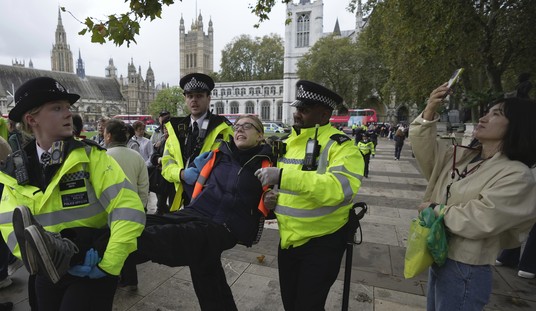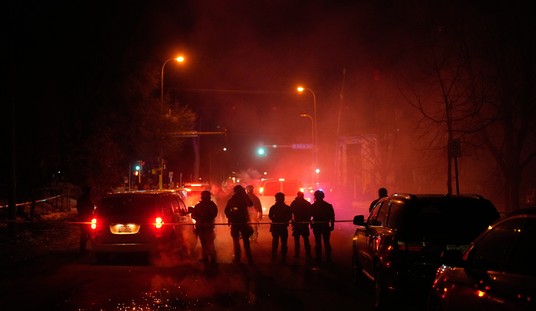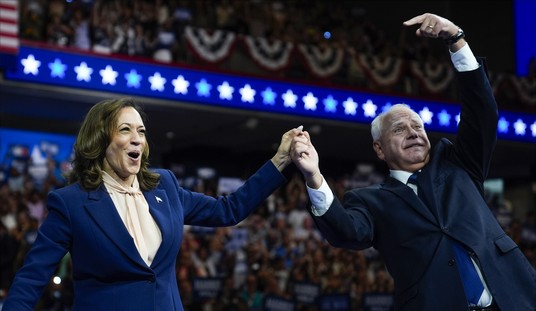News about the creation of a so-called ‘moderate powers front’ is making the headlines in Baghdad’s papers again. This time headed by the ruling parties, not the opposition, al-Sabah reported last Wednesday:
“The two Kurdish parties (PUK and KDP), the Dawa Party, and the SIIC agreed yesterday (Tuesday) to form a national political front that will be officially announced next week.”
And as usual the Dawa and SIIC can’t move forward on anything without the blessing of Ayatollah Sistani, so the SIIC sent Abdul Mahdi to Najaf to brief Sistani on the plan:
“Vice president Aadil Abdul Mahdi briefed Ayatollah Sistani about the national front that was reached among the four major parties as well as the efforts to broaden the participation [in this front].”
Abdul Mahdi said during a press conference after meeting his eminence in Najaf that, “We support the elected government,” [to answer questions about replacing Maliki before they are asked] and added, “We have informed Sayyid Sistani of the new coalition that would soon be announced, and we reassured [him] during the meeting that there was no intent to undermine the current government.”
I think that the new-old Kurdish-Shia coalition needs to have something more than God’s blessings via Sistani. Seeking the approval of senior clerics, and similar shows of support, have become obsolete, boring, and likely as ineffective as they have been in the past.
The formation of this coalition seems to be a precursor to Maliki’s plan to radically reshuffle his cabinet. Perhaps by dropping all of the “extra weight” and replacing the current cabinet with a slimmer one of just 20 posts:
“Haider Ibadi, a member of parliament close to PM Maliki said the latter is seeking a radical cabinet reshuffle, Ibadi added that there’s been a suggestion to reduce the number of ministries down to 20, and [to move] away from political quotas.”
The position of the Accord Front, particularly the Islamic Party, continues to oscillate between the two options. Al-Sabah wrote on Wednesday:
“Members of parliament from the Islamic Party Alla Makki said the party was currently considering the option of participating in the national front announced by major political parties.”
On the other hand, the Iraqi List continues to move forward with its own plans to form the political mass we mentioned in earlier posts. Al-Mashriq wrote on Wednesday:
“Sattar Bayir, member of parliament from Allawi’s party said, ‘The negotiations have gone decently so far to form the suggested Iraqi front. The movement is to form an Iraqi front from all national parties, organizations, associations and figures.’ And he added that there are ongoing negotiations with various parties including the Accord Front, the Dialogue Front and the Fadheela Party…”
In a later, relevant development, Talabani announced a power-sharing agreement between the presidency (Talabani, Abdul Mahdi, and Hashimi) and the premiership (Maliki, Saleh, and Zawbai). Al-Sabah reported on Thursday:
“Talabani added: There has also been an agreement between the presidency and the premiership to establish group-leadership according to the constitution which states the fact that the executive authority consists of these two leaderships, and by doing that the complaint of sidelining the representatives of Sunni Arabs in decision-making can be dealt with.
It looks like the two political poles–the ruling coalition and Allawi’s group–are competing for the votes of the Fadheela and the Islamic Party, but in slightly different ways. While Allawi needs the votes so badly that he’d even invite the Sadrists (as he himself said yesterday in an interview on al-Arabiyah); the ruling coalition is more interested in winning the Islamic Party to its side to gain a Sunni element in its lines. An overt attempt to give an ethno-sectarian coalition the national cover it needs.
In fact I’d even say that the Kurdish-Shia coalition since its inception has been ignoring logic and geography. Both of them have direct borders with the Sunni populated region, and almost no direct contact between their communities. The Kurds for instance allied themselves with the Shia, while it’s the Sunni who are in direct contact with them, standing between them and Kirkuk. Normally solving the problem would require dialogue and understanding with the influential party on the ground. Not with the party sitting hundreds of miles away.
The other side of this deliberate ignorance of logic is represented by the dream to build an ethnic Kurdish state in a region where neighboring countries have problems with significant Kurdish communities. Thinking about creating an ethnic state in the age of globalization reminds me of the Arab dream to create a racist mono-state in the last century. And the same is true of the Shia when they think of creating a state after the Iranian model when that very model is getting more isolated from the rest of the world with every move it makes. Here too there’s a geographic factor when they, the Shia, ignore the presence of hard-line Sunni states in the neighborhood.
So back to a short note on Allawi who made a rare public appearance yesterday. As usual his answers were elusive most of the time, but after some persistence from the host he finally voiced his frank opposition to Maliki, and said the latter was Prime Minister of the UIA, not of Iraq.
In general, the prospects of the two ventures are in critical equilibrium; Allawi’s has the appeal of non-sectarian secularism while its major weakness is the lack of a significant Kurdish component, which will no doubt reduce its chances to become the widely-representative ruling coalition unless it succeeds in snatching one of the major Kurdish parties and adding it to its ranks.
On the other hand the Shia-Kurdish core of the other camp has the weakness of still not having a Sunni component. The advantage it might enjoy from controlling key posts in the government which allow it access to resources and publicity, is counterbalanced by the heavy burden of a record of poor performance in running the state.
Finally, and although I don’t want to take sides in this, I have to note that the Kurdish-Shia attempt only seeks to secure a lasting parliamentary majority in order to pass legislation that fulfills their narrow ambitions. After all, the alliance between secular Sunni Kurds and conservative Shia Arabs highlights only the opportunist nature of the two sides.
Allawi’s ambitions on the other hand are more clear to some extent. He’s secular, but he’s also known to have some of the common qualities of authoritarian leaders.
However, time has shown that he too would play the game only if he is sure he can win. And the fear of the Kurds and Shia parties indicates that Allawi is taking the game seriously this time.
When this level of activity takes place while the cabinet has 13 void seats and the parliament has about 80 void seats we can expect that a big change is in the offing. Which front will lead this change is still up in the air.
Omar Fadhil is PJM’s Baghdad Edtior; he blogs at Iraq the Model.









Join the conversation as a VIP Member